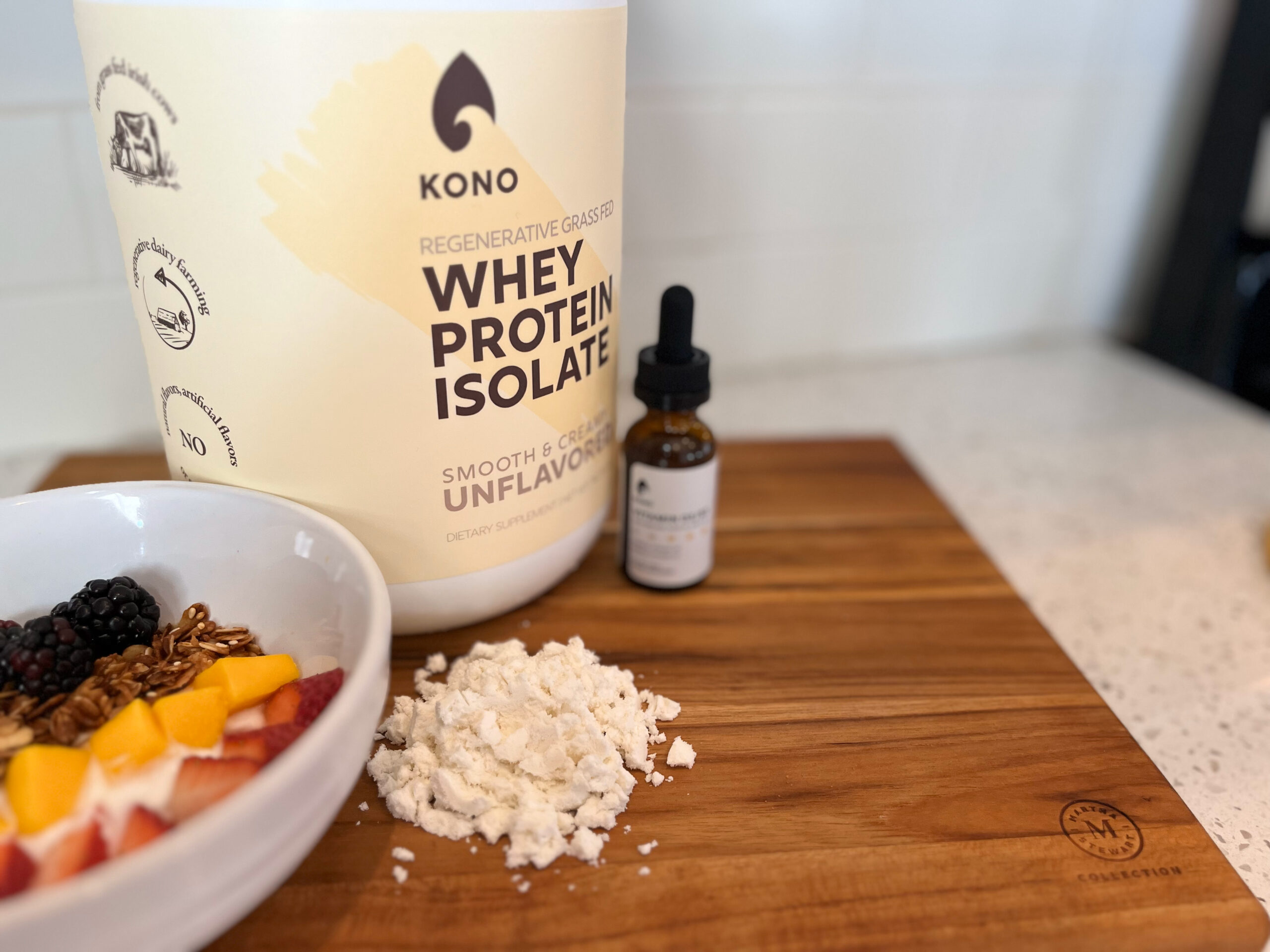Protein is for everyone, but what about protein powder? Protein powders are often thought of as nutritional supplements for athletes. This is completely understandable because most protein powders focus on selling their products to athletes. But, while athletes do need more protein than most people, everybody needs to consume a minimum amount of protein every day for good health. When thinking of protein-rich foods, you may think of meat, eggs, seafood, and dairy. These are some of the foods that contain the highest amounts of protein. But did you know that protein is also found in many plant foods including legumes, nuts, seeds, and grains—and there is even some protein in vegetables and fruit? Many people can get enough protein by eating a variety of nutritious foods throughout the day. However, as with any nutrient, if you aren’t able to get enough from your diet, you may benefit from supplementation.
Choosing the right protein powder for you
Protein powders are convenient sources of protein and often have added vitamins, minerals, sweeteners, and other ingredients. Different protein powders may contain protein from several different sources, and the amount of protein per scoop can vary between products. In the U.S. nutritional supplements—including protein powders—are not regulated. Some protein powders have been found to contain contaminants like heavy metals. These are the reasons why it’s important to read the nutrition labels and get a recommendation for a high-quality product from a healthcare professional that you trust before you start a supplementation regimen. Here is a brief overview of some of the most common types of protein powders.
Whey or casein protein powder
Whey and casein are made from milk and should be avoided if you are allergic, sensitive to, or otherwise avoiding dairy. These animal-based proteins contain all of the essential amino acids your body needs. The difference between them is that whey is water-soluble and is absorbed more quickly than casein.
Collagen protein powder
Collagen is the most common protein naturally found in your body. It’s essential for the structure of your bones, skin, muscles, tendons, and cartilage. Collagen supplements, including protein powders, are animal-based.
Soy protein powder
Soy is one of the plants that are high in protein and contains all of the essential amino acids (it’s a complete protein). Soy-based protein powders are a popular choice for people who avoid dairy.
Pea protein powder
Pea protein powders can be used by those who avoid dairy and soy. Pea protein is rich in eight of the nine essential amino acids, so it has low amounts of just one amino acid (methionine). Pea protein can be mixed with rice or animal-based proteins to provide a complete protein.
Hemp protein powder
Hemp protein is low in two essential amino acids (lysine and leucine), however, it does contain some of the essential omega-3 fatty acids.
How Zenergy can help
At the Zenergy Juice Bar, we use Kono Regenerative Grass Fed Whey Protein Isolate. This protein is sourced from grass-fed Irish cows on a family-owned and operated regenerative farm. It’s highly digestible and virtually lactose-free, with minimal ingredients to ensure purity.
Meeting your personal protein needs is essential to good health. Protein is so important for good health that your body naturally contains over 10,000 different proteins. Protein is critical for all parts of your body including your muscles, bones, skin, hair, enzymes, blood, hormones, etc. Protein helps with so many functions including promoting bone and muscle mass and strength, healing burns and wounds, and building a strong immune system.
If you think you may need a professional nutrition assessment to see if you are meeting your protein needs, or to consider starting or changing your supplementation regimen, consult Registered Dietitian, Tina McGrew.
Email Wellness Manager Kylon Myers to set up an appointment: kmyers@zenergysv.com
